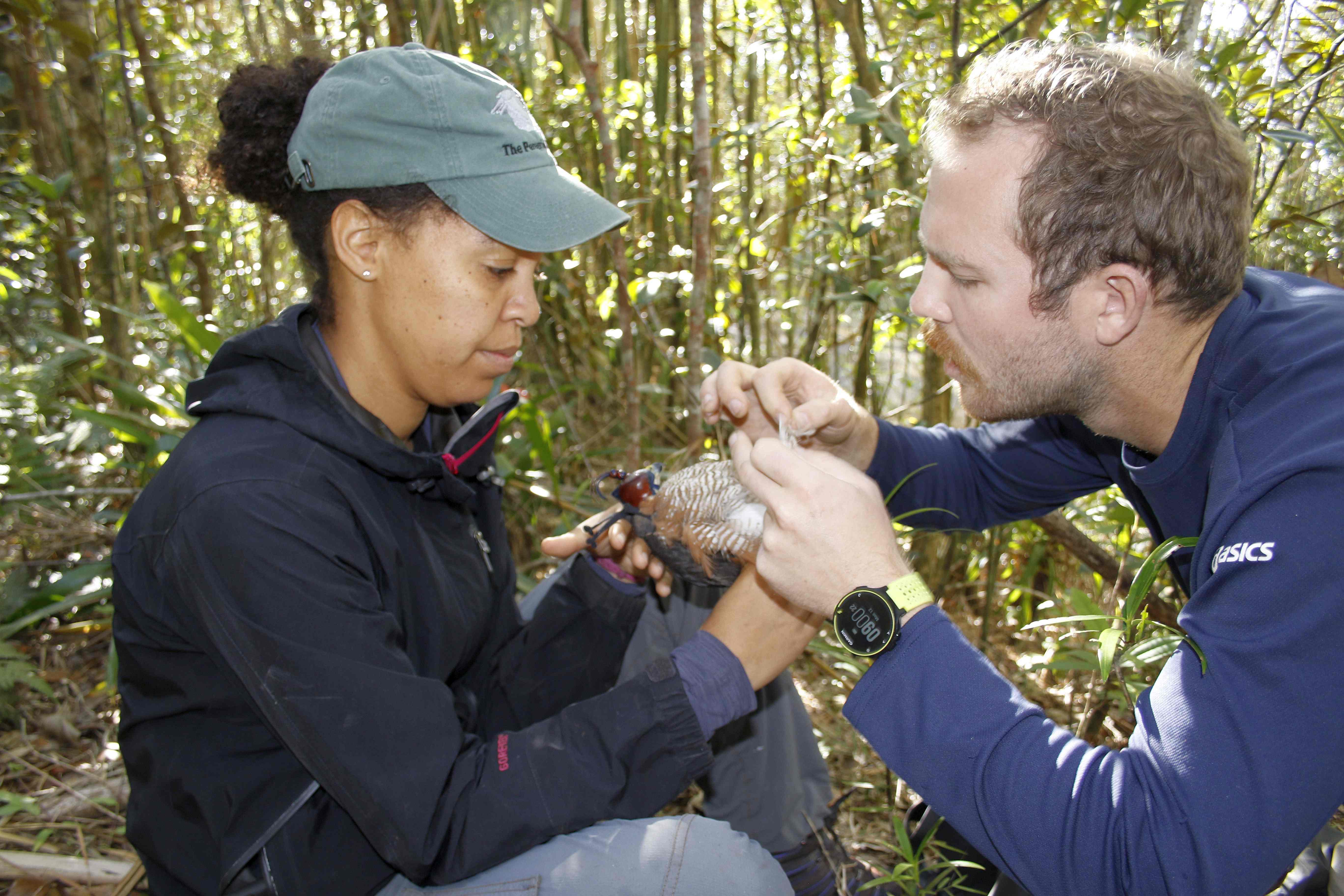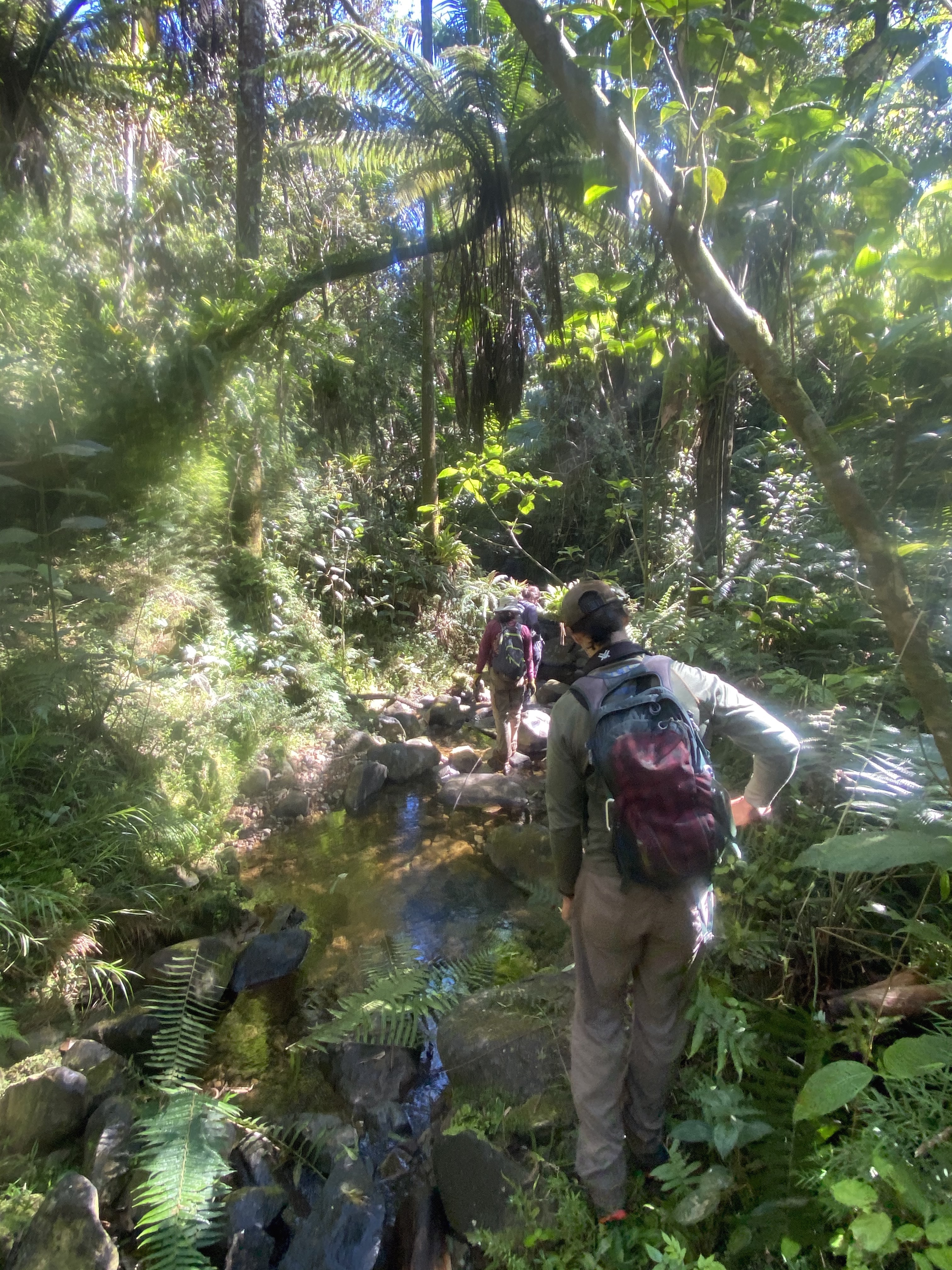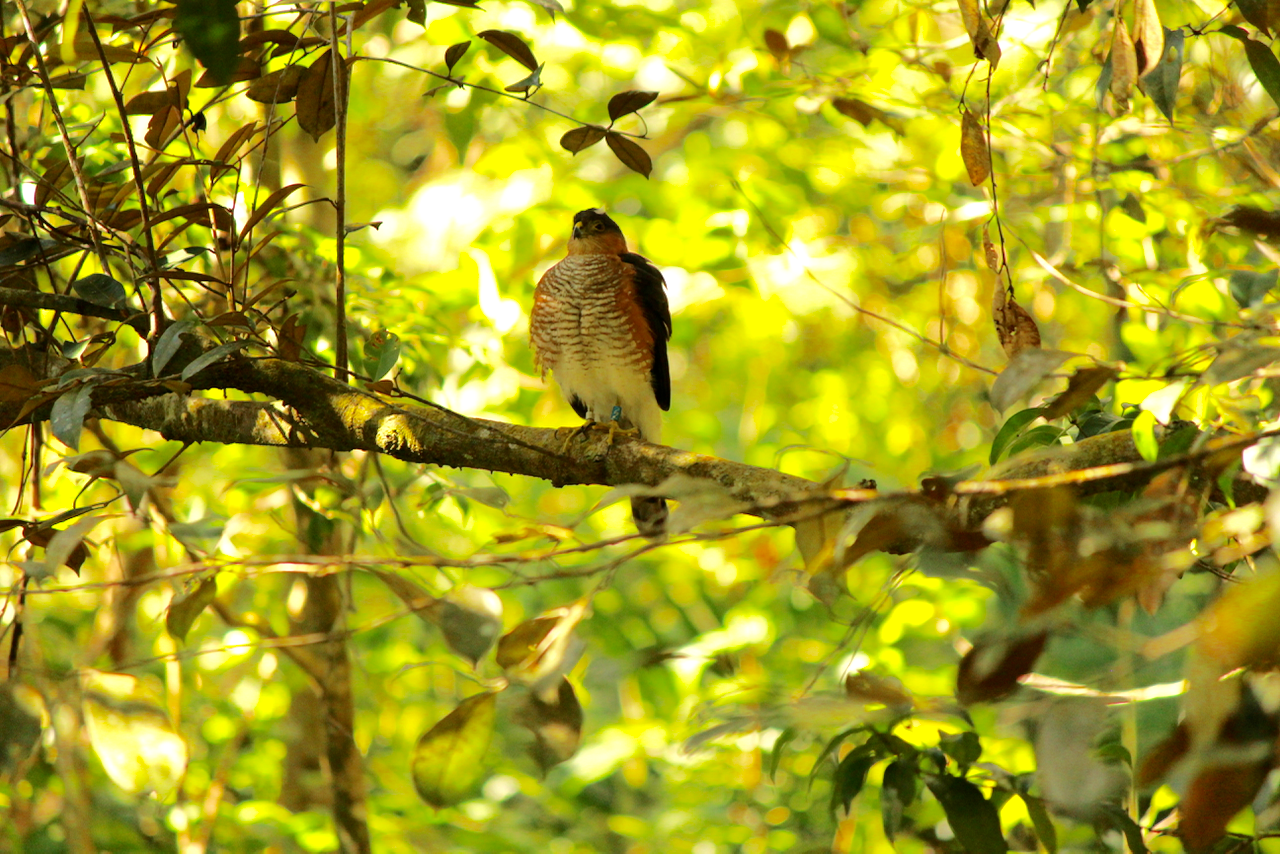Michaela Gustafson
Update submitted by Peregrine Fund biologist, Hana Weaver:
Disheveled by earthquakes affecting much of the Caribbean in January, our field season was delayed by a full month. Arriving in February, we quickly began gaining traction with a strong crew, local volunteers and borrowed assistance from The Peregrine Fund’s California Condor team. Despite an unseasonable amount of rainfall, the project was moving in a positive direction when erupting news of the Covid-19 virus reached Puerto Rico. Based on rapidly evolving information, we found ourselves faced with intensely difficult decisions.
As our planned activities adapted to a new reality, we looked first to remain nimble and at all costs avoid placing hawks in a situation for which we were not 100% prepared. An initial, and flexible decision was made to suspend egg collection and release activities for the season; while monitoring, controlling for botflies, and banding activities were still on the table. Within 48 hours, new information on the outbreak, and mounting concerns regarding limited medical infrastructure on the island, forced us to adjust our focus to our own health and the health of local communities. Finally, the decision was made to suspend all field activities until the virus outbreak is under control or until the island’s medical capacity is better prepared. Saddened by the decision, I believe we must all do our best to only use what is necessary and to support one another through these troubling times. With this said, I sincerely hope the remainder of this letter may bring a little joy into your homes.
Before I dive into the hawk news, I want to formally introduce a “new”, full-time member to the sharp-shinned crew: Melissa Murillo. I say “new” because this incredibly dedicated woman has actually been part of this project since the beginning. She trained many of our field crew, myself included, in all matters of field monitoring, machete wielding, forest navigation, and hawk behavior. Her passion for this species is evident by her steadfast devotion to the project, volunteering her personal time each and every year since 2016. To say we hired a qualified person is an understatement; I am truly grateful to work alongside her, with her invaluable knowledge and ever-positive attitude, even in the face of a global pandemic!
Excited for another season of fieldwork, our team spread across the forest reserves of El Toro Negro, Maricao, Guilarte and La Olimpia to survey for the secretive Puerto Rican Accipiter, locally known as El Gavilán de Sierra. Early season surveys consist of scanning expanses of skyline above high-elevation forests to locate territorial hawks demonstrating an aerial courtship display above the canopy. A behavior my fellow field biologist articulates to landowners as a “dance.” Our early season count of hawks was modest but promising, with 27 individual birds observed. Though we were not able to get visual confirmation on leg bands, we did see several juvenile plumaged hawks, meaning that some of last year’s fledglings survived their first winter on their own, a great sign for coming breeding seasons. This year, we can say with confidence that there are at least ten breeding pairs of sharp-shinned hawks in our monitored forest reserves, and one of them is quite exceptional!
You may recall from last season, when we re-discovered our first released female from 2018, a hawk known as “2/Z”. Well, she has again provided exceptional insight into our recovery methods, specifically in regards to hacking Accipiters. Two weeks ago, our Puerto Rican queen, 2/Z, was again discovered in the Adjuntas region, this time paired with a wild adult male! The pair was found nest building less than a kilometer from the hack site where she herself fledged under our watchful eyes two years ago. During our last week in the field, the pair was observed performing courtship displays, nest building and copulating; to have held her as an egg and see her now, brings on another level of pride and hope for a positive outcome for this project.
In these difficult times I hope we can all find some comfort and ease in knowing that through hurricanes, earthquakes and global pandemics, these fiery forest hawks will persevere!









